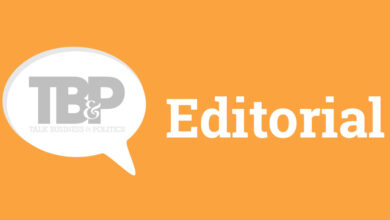What Prop Q’s defeat says about Austin’s current politics


Campaign signs for and against Prop Q are posted on Waller Street on Monday, Nov. 3, 2025.
Jay Janner/Austin American-StatesmanWhen she went to the polls during early voting, Rachel Walker felt pressure from some fellow progressives to support Austin’s Proposition Q tax increase, believing it would help fund crucial services, including ongoing initiatives to address homelessness.
But the 39-year-old waitress who lives in East Austin also questioned whether years of city spending had really helped that many people get off the streets, and feared her landlord could raise her rent to offset the tax hike.
Article continues below this ad
“I’m already working seven days a week, and I can’t work eight,” she said. “And I don’t know what the City Council is doing with their money, so there is cynicism there for sure.”
The resounding defeat of Prop Q on Tuesday showed Walker’s concerns were widely shared.
The outcome, which served as a litmus test for how residents view the performance of local government in Austin, laid bare months of growing distrust that will continue to reverberate through City Hall and shape multiple City Council races next year.
Article continues below this ad
Prop Q’s 63% loss among Travis, Williamson and Hays County voters represents harsh disapproval of the City Council’s ability to manage its finances, according to political experts, voters and city leaders themselves. Those mounting concerns came amid recent revelations that the city spent $1.1 million on a rebranding effort that produced a widely unpopular new logo and ongoing reporting by the American-Statesman that questioned discretionary spending among city officials that was out of step with their peers – and at times, the city’s own rules.
But the defeat also occurred amid an era of distrust in government that political observers say has trickled from national to local – and what voters such as Walker perceive as broader instability that made them less willing to open their wallets to a tax increase of about $300 a year for the average Austin homeowner.

Donald Earl, who said he has been homeless for eight years, adjusts a voting sign as he stands with his belongings outside a voting location at the Terrazas Branch Library on Tuesday, Nov. 4, 2025. Austin voters are deciding on Proposition Q, a property tax rate increase that would, in part, fund $20.4 million for up to 350 new rapid rehousing units and expanded emergency shelter beds and services for people experiencing homelessness.
Jay Janner/Austin American-StatesmanA ‘tough environment’ for Prop Q
As a whole, Americans are concerned about affordability and the economy, Joshua Blank, research director of the Texas Politics Project at the University of Texas at Austin, said.
Article continues below this ad
“The reality was that Prop Q landed at a tough time in a tough environment,” he said. As a whole, he added, Americans are concerned about affordability and the economy.
“Any measure that would ultimately increase the cost of housing was going to face an uphill battle, even if Austinites on the whole agreed with the goals for that money,” he said.
Some fear the result could represent the first step to a shifting landscape in Austin, eroding a long-held liberal value of helping vulnerable populations. City Council Member Vanessa Fuentes said in a statement that city programs could face cuts “at a time when many people in our city need more help, not less.”
Article continues below this ad
Austin-based political consultant Jim Wick said that although it is too early to make that determination, the election could be a harbinger of a potential rightward shift in the Austin electorate.

Mayor Kirk Watson discusses leading with empathy as he speaks to the press during a City of Austin press conference regarding homelessness in Austin Tuesday, Oct. 21, 2025.
Mikala Compton/Austin American-StatesmanAustin Mayor Kirk Watson, who has worked in local politics for almost three decades, laid bare many of the implications in a 500-word statement issued late Tuesday after early results showed the measure was likely doomed.
“Voters want stable, efficient governance,” he wrote. “At a time when people are losing faith in all levels of government, including local government, as evidenced by the election outcome, our city needs to show it can act in a thoughtful, trustful way.”
Article continues below this ad
“Trust needs to be restored,” he added.
Why Prop Q failed
Prop Q’s defeat represents a reversal in how Austin voters have typically viewed requests from City Hall to pay more for city services or projects.
The measure would have added $110 million to the city’s budget to offset a loss in property tax revenue that was largely caused by state-mandated caps on property tax growth.
The proposition got off to a rocky start — and only worsened from there.
Article continues below this ad
“I think the problem was a messaging problem,” said Austin attorney Adam Loewy, who spent $20,000 on three anti-Prop Q billboards around the city. “If you asked people what the money was for, it was a different answer. It was totally vague.”
The city said it would divide the $110 million among homeless programs, park maintenance and public health and safety.
But Loewy said specifics were absent: “They weren’t saying they were going to buy more ambulances – something people could understand.”
Then came news that the city spent $1.1 million on a rebranding initiative centered on a logo that many design-conscious Austinites deemed lacking and the Statesman’s revelations that council members had used funding from their office for extravagant meals, international trips, donations to political causes and other expenses — spending that reinforced perceptions of a wasteful and frivolous spending culture.
Article continues below this ad
“I don’t think they are willing to try to be more efficient,” said Ryan Saunders, a 38-year-old board member for the East Cesar Chavez Neighborhood Contact Team who voted against Prop Q. “They just want to do what they want to do and they don’t want anyone to tell them ‘no’ is what it seems like.”

From left, Bob Cole, Adam Loewy, Steven Brown and Matt Mackowiak lead an anti-Proposition Q watch party at Bouldin Acres in Austin, Tuesday, Nov. 4, 2025.
Mikala Compton/Austin American-StatesmanProponents of the measure tried to inject partisanship into the debate, but the effort fell flat among the city’s liberal base.
In the lead-up to the election, Prop Q proponents, including Travis County Democratic Party Chair Doug Greco, said the measure offered residents a chance to push back against Republican efforts to intervene in local politics, including a 2019 law limiting how much a Texas city can raise taxes without an election. But he also said that the measure was primarily a “pragmatic thing” that would have provided funding for much-needed programs.
Article continues below this ad
“After years of Republican attacks on government at all levels, it’s understandable, but unfortunate, that distrust has made its way to the municipal level,” he said Wednesday.
But Matt Mackowiak, a Republican strategist and co-founder of the influential Save Austin Now PAC, said: “This is not ideological. This is not partisan. This is a taxpayer revolt.”
Mackowiak and other opponents ran an aggressive anti-Prop Q campaign, raising $288,812 as of Oct. 27, while a PAC formed by supporters brought in only $67,998.
The fundraising gap forced proponents to take a more grassroots approach that involved social media posts, neighborhood meetings and group chats.
Article continues below this ad

Save Austin Now’s Matt Mackowiak speaks during an anti-Proposition Q watch party at Bouldin Acres in Austin, Tuesday, Nov. 4, 2025.
Mikala Compton/Austin American-StatesmanThe day before the election, South Austin resident Bridget Tobin asked her Facebook friends to support Prop Q.
Tobin said she is disappointed by the result and fears that it could usher in a new period of “individualism” in Austin politics where voters are less concerned about others.
She said the defeat “is a really historic moment for Austin and really just shows how the class divide is widening, and part of that is that we have more millionaires and billionaires who have moved to Austin and are out of touch.”
Article continues below this ad
Even among council members, many were muted in the lead-up to the race as the political winds appeared to shift away from Prop Q. Some council members met with neighborhood groups and advocated for the budget that triggered the tax rate election on social media, but others chose to step away from actively campaigning.
Watson said in his statement that his position throughout the campaign was that “it was time to trust the voters,” adding that “I trust their decision. And I hear them.”
Prop Q is dead. Now what?
Most immediately, council members must craft a new budget for a fiscal year that has already begun.
Article continues below this ad
In his statement, Watson said city leaders should “adjust the original proposed budget, if it all, modestly. This is not the time to engage in or relitigate significant, drawn out, divisive policy fights in the budget.”

Austin City Hall in downtown Austin
But he said city leaders must go further, developing a “systematic evaluation to better balance the cost of services with the need for those services.”
Brian Smith, a political science professor at St. Edward’s University, said the real test now is whether the diverse coalition that opposed Prop Q can find common ground on where council should trim.
Article continues below this ad
Prop Q’s defeat, he said, doesn’t solve Austin’s budget problem and could lead to more disagreements about how to cut expenditures.
Other council members also acknowledged they must work to earn back the public’s trust.
Council Member Marc Duchen said he wants the city to conduct an independent efficiency study to identify ways to save money without relying on tax increases.
He said he thinks that effort would help restore trust.
Article continues below this ad
“We have to acknowledge this reality,” he said. “This is a wake-up call.”
Council Members Paige Ellis, Zo Qadri, Ryan Alter and Jose Velasquez are each running for reelection next year. Observers say the outcome could also negatively affect incumbents on next year’s City Council ballot.
Selena Xie, former head of the Austin EMS Association, supported the measure because she said it would have funded new ambulances and additional 911 dispatchers. She is running against Ellis next year.
Article continues below this ad
“A rejection of Prop Q is a signal to council that the city wants council to take spending more seriously,” she said. “The result underscores how concerned people are with rising taxes without getting the results that we were promised.”
Credit: Source link






